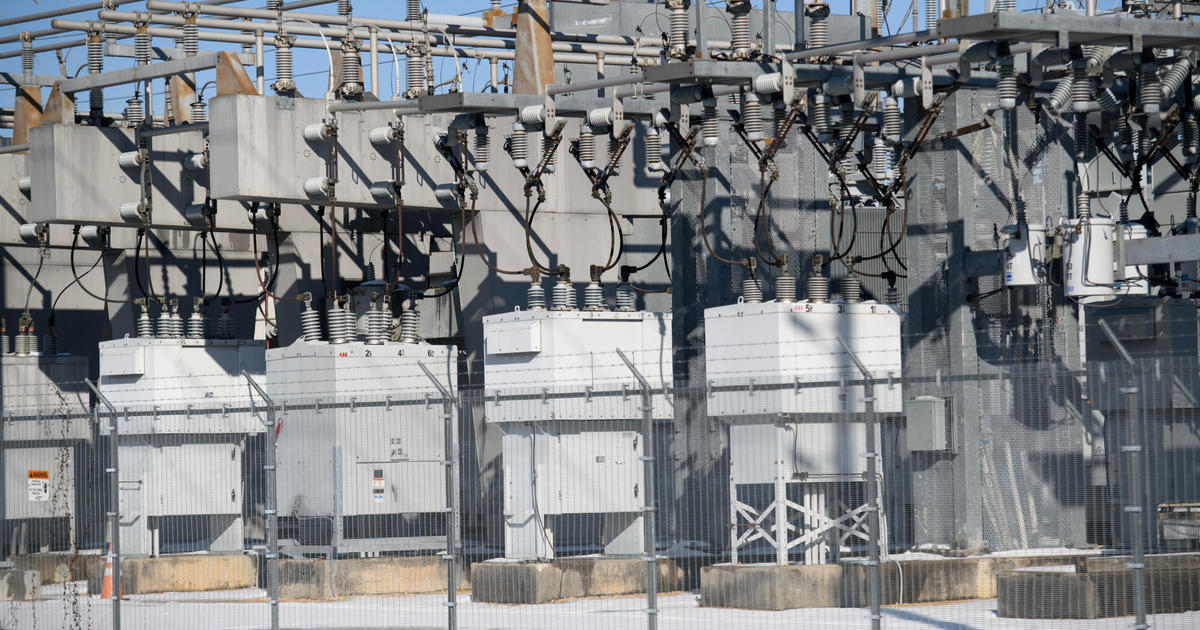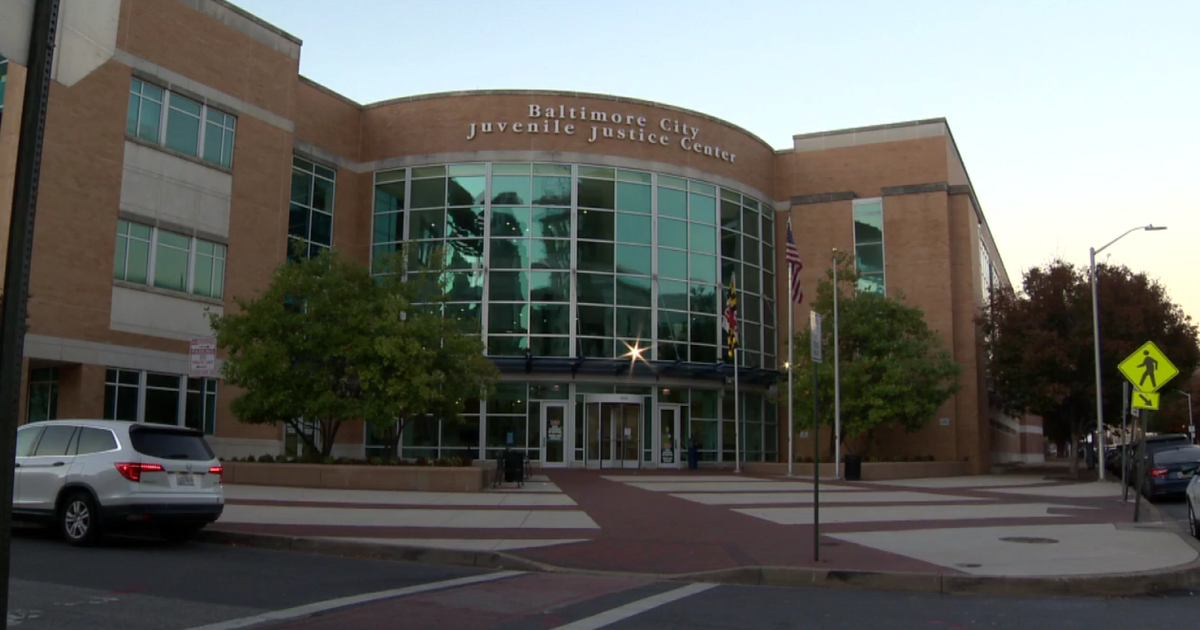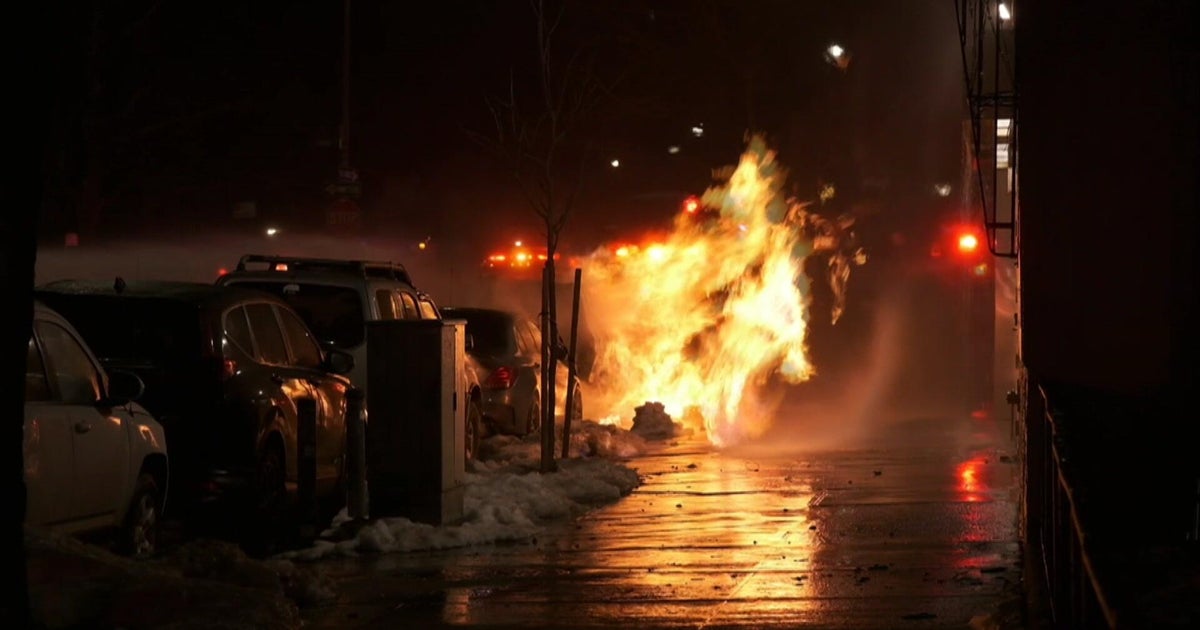Alleged Violations Against Atmos Energy After Gainesville Explosion
GAINESVILLE (CBS 11 NEWS) - Last January, Rick Trammell watched the Gainesville house he and his family owned for 20 years explode into a ball of flames. "What I saw was a nightmare."
There was a gas leak right out front of his house.
Trammell says he's still haunted by that day nearly nine months later. "I do wake up at night in cold sweats sometimes because I can't get it out of my mind."
Now, the Railroad Commission of Texas, sent Atmos Energy, which operated the natural gas pipeline in question, a letter outlining two alleged violations.
The first says "...It took the operator seven hours to stop the flow of gas. If more valves were adequately spaced in the system, Atmos would have been able to shut the flow of gas sooner..."
Brigham McCown headed the U.S. Pipeline & Hazardous Materials Safety Administration, which regulates pipelines, from 2005 to 2007 under President Goerge W. Bush. "I think they're pretty serious. It should not take seven hours to shut off gas to a neighborhood."
Railroad Commission records give a timeline of events on that foggy January morning.
At 3:30am, city of Gainesville workers started to set-up so they could fix a water main break on Weaver Street, right near Trammell's house.
A city dump truck then fell into a sinkhole created by the water main break, hitting the gas line.
Shortly after 4:30am, an Atmos Energy crew was sent to the scene, and upon arrival around 5 a.m., evacuated the family who leased Trammell's house, and a neighboring home. Trammell's house went up in flames at 7 a.m.
McCown says, "Even if it's at 4:30, 5:30, 6:30, 7, that's two and a half hours, and that's a little too slow."
But Railroad Commission records show the gas leak wasn't shut off until noon - five hours later.
McCown says having more natural gas valves adequately spaced through its system would make it easier for crews shut off the gas.
So could the house explosion have been prevented?
McCown says, "It may very well have been prevented."
Trammell says, "It runs chills through me to think that it took seven hours to get the gas cut off."
In it's response to the Railroad Commission Monday, Atmos Energy said it's "...crew made preparations to control the flow of gas in order to eliminate the leak..in a timely manner..." and that the "...high pressure water line break caused an abundance of flooding that restricted Atmos Energy's access to the gas facilities..."until the water line was fully shut down and the flooding water receded."
The Railroad Commission also alleged a second violation against Atmos saying "...the written emergency plan did not include adequate procedures..."
Atmos responded to the Commission saying its "written emergency plan of procedures..exceed the requirements..." and that the "...alleged violation is without any basis in fact..."
Atmos tells CBS-11 no one was injured during the explosion thanks to its employees quick actions.
As for Rick Trammell, he says he's planning to sue Atmos Energy. "The people of Gainesville pay for the gas they use and they should have a right to know they live in a safe home and safe environment."
Atmos Energy faces a maximum potential fine of $20,000.
The Railroad Commission is still reviewing this case.
Latest News:
Top Trending:
- Sasquatch Genome Project Reveals Bigfoot Photos
- Tricks To Using The New iPhone Software
- Enter The "Show Your Spirit' Sweepstakes
- Mexican Monster Truck Wreck Kills 8, Hurts Dozens
- Nolan, Daniels Involved In Heated Confrontation
- PHOTOS: Your Pet Pictures







